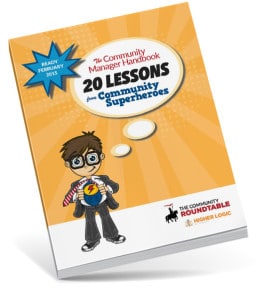 Policies, guidelines, and governance provide the framework and boundaries for your community, but moderation is where those policies are turned into day-to-day management. Direct moderation is the day-to-day interaction and management that signals to members what gets attention—both good and bad—from the organization. Successful community management requires not just a day-to-day awareness of the activity in your community but also the seamless application of tools and strategies to maximize engagement and minimize disruption.
Policies, guidelines, and governance provide the framework and boundaries for your community, but moderation is where those policies are turned into day-to-day management. Direct moderation is the day-to-day interaction and management that signals to members what gets attention—both good and bad—from the organization. Successful community management requires not just a day-to-day awareness of the activity in your community but also the seamless application of tools and strategies to maximize engagement and minimize disruption.
Moderating doesn’t mean eliminating conflict. In fact, vibrant and productive communities depend on differences of opinion between members to create discussion, generate new ideas and develop innovative solutions. But that vibrancy is dependent on the community’s ability to maintain a respectful tone, and it’s the moderator’s job to thread that needle – fostering discussion and even dissention while maintaining the proper tone. In The Community Manager Handbook we shared best practices for effective community moderation, so when you see a conflict developing:
• Step up your monitoring – spend time understanding the conflict before you get involved
• Give it space – often conflicts will resolve themselves, or the community will help mediate
• Model behavior – it can sometimes be helpful to rephrase opinions of others in a more emotionally neutral tone that allows people to focus on the content of the comment vs. the tone.
• Get personal – in some cases, a personal outreach, especially a phone call, will both help you understand the conflict and perhaps create a space for resolution
• Don’t take it personally – Remember, your role is to create a safe space for people to share, not to arbitrate decisions. Getting personally invested in conflict is a great way to generate distrust and burn out.
 Mike Pascucci, Manager of Social Media and Community at Autodesk shared this powerful tip: “Remove emotion from the decision making process as a moderator. Look at every piece of content for what it is.” He also noted that being proactive also creates positive momentum. “Reactive management is by its nature defensive. Proactive gets you seen as a thought leader in the space—and that gives your internal teams comfort, and creates a circle of trust with both internal employees and external communities.”
Mike Pascucci, Manager of Social Media and Community at Autodesk shared this powerful tip: “Remove emotion from the decision making process as a moderator. Look at every piece of content for what it is.” He also noted that being proactive also creates positive momentum. “Reactive management is by its nature defensive. Proactive gets you seen as a thought leader in the space—and that gives your internal teams comfort, and creates a circle of trust with both internal employees and external communities.”
If you’re tasked with moderating an online community check out The Community Manager Handbook’s section on moderation best practices. You’ll find three good moderation rules of thumb, a sample engagement ladder and more expert advice from our Community Superheroes.
—
Want to connect with community professionals around the world? Join our Facebook group!
